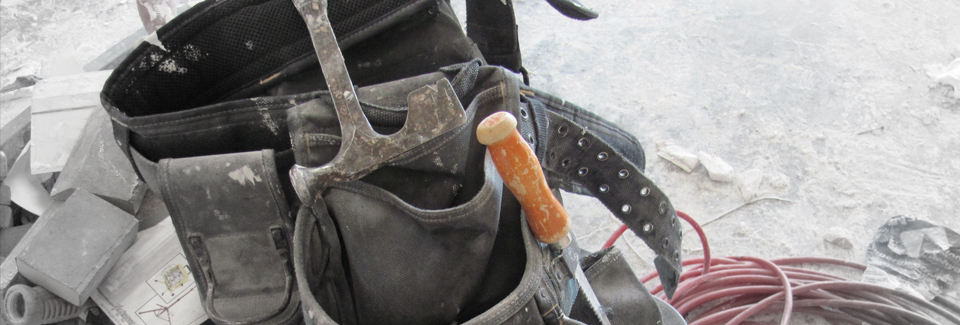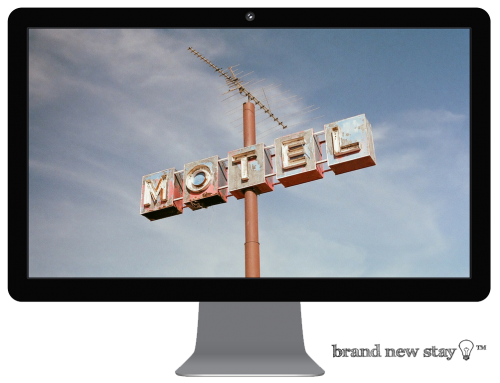Why You Need an 'Experience Architect': Design Your Hotel and Organization to Succeed
Lately, business has been good for hoteliers. Really good. Revenue per available room is up, average daily rates are strong and occupancy is higher than it has been in quite some time. With the numbers looking this good, what could go wrong? Everything.
It’s no secret that the hotel business is a cyclical one and where there are ups, there will most certainly be downs. Regardless of market conditions or environmental factors, there is one component of the hotel business that every hotelier can and must control the success of: the guest experience. If you haven’t already got one on your team, now is the ideal time to get out there and find yourself and your hotel an ‘Experience Architect.’
Hotels are a series of internal and external processes and systems designed to offer an outstanding experience for the venue’s team, guests, and owners. Booking methods, check-in/check-out processes, pre-stay and post-stay messaging, concierge, food & beverage, spa, activities, human resources, engineering, sales, housekeeping programs and on and on all need to be meticulously designed and maintained to deliver an incredible experience. If one system fails, the whole venture fails. And, worst of all, the guest experience is destroyed. Hospitality is a zero-defect business – you can’t take back a bad experience.
An Experience Architect can help you avoid failure by custom-designing your hospitality venue and organization’s success. Why is the guest experience so important? Creating and delivering consistently amazing guest experiences will differentiate your hotel and create a sustainable competitive advantage that enhances profitability and growth.
While your organization or department’s specific Experience Architect job description will be tuned to your unique prerequisites, in general, an Experience Architect must: collaborate, listen, translate, find common ground, seek out opportunities, communicate, build models, and design to a standard higher than the one you’ve got.
Let’s Take a Closer Look at the First Three Skills
- Collaborate – There are no independent systems in a hospitality venue. If your Experience Architect can’t collaborate with you, your guests, your team and your vendors, then you better look for a new Architect. A great Experience Architect will not only collaborate and cooperate well but will also inspire enhanced teamwork among and across existing stakeholder segments.
- Listen – Your Experience Architect must be an expert listener. Unique design that works the best is largely generated by listening. Your Experience Architect must hear the voice of your guest, your team, your vendors, your partners and your competitors to craft unique solutions that make sense for all of your stakeholders.
- Translate – Beyond collaborating with stakeholders and listening to find and create the first critical steps to designed success, your Experience Architect must be an adept translator to ensure that everyone who needs to can understand the message, the need and the direction. Speaking of direction, translation should also apply to your Experience Architect’s ability to literally move your organization from its current position to a better one.
- Find Common Ground – This one is big because we know that every system, process and department will have a sizable spread between what the team wants, the owner wants and what the guests demand. The Experience Architect must employ his or her ability to collaborate, listen and translate to help determine where the common ground really is. Common ground is rarely in the middle and could be a need for extreme action like staffing changes, room remodeling or a different rate structure.
Let’s use your team’s performance to help illustrate the ‘common ground’ and remaining components of your Experience Architect’s directives.
Here are the facts that your Experience Architect has gleaned from collaborating and listening:
- Your guests think that your team should perform better.
- Your team thinks that they’re performing as good as is expected of them.
- Your team supervisors think that your team is performing well.
- Your home office leaders know that other properties in the portfolio have a higher standard, higher guest satisfaction and team performance rankings than your hotel.
- Your owners don’t quite care about the team but know that rates should be higher.
Team performance may be the most difficult element for an Experience Architect to translate – especially to the team. While there are a variety of methods your Architect could employ, let’s say that he or she starts with the owner. Your Architect knows that the owner wants the rates to be higher but your Architect also knows that there’s no way for that to happen given the current performance of the team.
To translate and find common ground with the owner, the Architect demonstrates that he or she understands the goal of the owner to raise rates and advises the owner that the Architect and the team share that goal. However, in order to achieve that goal for the owner, the team is going to need some coaching and performance improvement. To help firm up this position, the Architect shows the owner direct guest feedback that demonstrates a critical need for the team to perform better.The owner, who didn’t really care about the team before, now cares about the team – a lot. Understanding that his goal is shared by the Architect and the organization, the owner understands the need to improve the performance of the team and wants to collaborate with the Architect and other stakeholders to see to it that the team’s performance does improve. The Architect and the owner then go to the team at the home office and the home office team shows to the owner and the Architect the standard that other properties in the portfolio are operating at.
It becomes clear to the owner and the Architect that the supervisors of the team are not holding the team accountable to as high of a standard as they should be. The owner, Architect and home office folks collaborate and develop a model to show the supervisors of the team the real standard they should attain and maintain to ensure a compelling guest experience. The owner, Architect and home office folks invite the team’s supervisors to a meeting at the home office to discuss the higher standard that needs to be prescribed.
Through communication and reviewing the higher standard model at the home office meeting, the supervisors start to show signs of frustration. Finally, one of the supervisors speaks for the group and shares that the supervisors were never made aware of these ‘new’ standards. The Architect takes over and further learns that none of the supervisors have ever been to the top performing properties they’re supposed to emulate. The Architect proposes to the home office, the owner and the supervisors that the supervisors get a new opportunity to meet, train alongside and work with their colleagues at the better performing properties. The newly created opportunity to work first hand with model properties is favored by all and the Architect works through the details of this training program for the supervisors. After weeks of training, the supervisors collaborate with the Architect to help translate the insight that they have gained from the top performing properties to the team at their property. The Architect then helps design a new training model for the team to guide the supervisors as they improve their team’s performance.
As you already may guess, the supervisors communicate the higher standard to the team, demonstrate the new training model to the team that will help them to deliver the standard and help translate what this means for the team, the owner, the guest and the home office thus closing the loop and establishing common ground.
Success.
Now that we’ve navigated the basic concepts associated with the Experience Architect’s role, you might be left asking: who should be your organization’s Experience Architect?
The answer: a passionate leader who wants to dramatically and positively impact the guest experience, organizational culture and financial performance. Hopefully that describes you and several people you know at your hotel.
The idea here is that every person who holds a management level position at your hotel should have the skillset and desire to be an Experience Architect. In fact, they should be performing the Experience Architect role already. If your managers aren’t Experience Architect material then you might evaluate if they are management material. Again, the Experience Architect needs to be a passionate leader.
We’ve already established that making the guest experience at you hotel a priority is critical. A consistently exceptional guest experience is what will help make your hotel the most desirable during the good times and also help keep your hotel desirable when times get a little tough – occupancies drop and your neighbors start dropping rates to steal your guests away. Guests are loyal to the hotel that they can trust to deliver a better experience and guests will pay more for a better guest experience.
Does my Experience Architect really need to be called that? Do they even need a title?
No, you don’t need to call the person in charge of driving and designing an unbelievable guest experience at your hotel an ‘Experience Architect’ but you do need to call them something really cool. You need to make it clear that you take the guest experience seriously and have team members dedicated to seeing that through. If you’re still not convinced that your hotel needs an Experience Architect, ask yourself this: would you try to build a brand new hotel without an Architect? How about an Engineer and Interior Designer? If the hotel building itself and all of the stuff that goes inside it gets so much attention, it seems like the guest experience should too.
Not sure about the added expense of an Experience Architect? If you’d commission an online travel agency to get you a one-night booking, why wouldn’t you invest in converting that guest to a brand-ambassador for your hotel and the unique experience that you deliver? The return on investment associated with a good Experience Architect can be immeasurable.
In closing, hoteliers are innovative consummate professionals who employ a plethora of trained professionals to ensure that every guest stay is a great one. Their successful enterprises are the product of a plethora of systems and processes fastidiously maintained to deliver an optimal experience. The team of trained professionals whom they employ to make sure the hotel is successful must be active in every process that impacts the guest experience and an Experience Architect must be part of that team.
Also published here.
Lately, business has been good for hoteliers. Really good. Revenue per available room is up, average daily rates are strong and occupancy is higher than it has been in quite some time. With the numbers looking this good, what could go wrong? Everything.
It’s no secret that the hotel business is a cyclical one and where there are ups, there will most certainly be downs. Regardless of market conditions or environmental factors, there is one component of the hotel business that every hotelier can and must control the success of: the guest experience. If you haven’t already got one on your team, now is the ideal time to get out there and find yourself and your hotel an ‘Experience Architect.’
Hotels are a series of internal and external processes and systems designed to offer an outstanding experience for the venue’s team, guests, and owners. Booking methods, check-in/check-out processes, pre-stay and post-stay messaging, concierge, food & beverage, spa, activities, human resources, engineering, sales, housekeeping programs and on and on all need to be meticulously designed and maintained to deliver an incredible experience. If one system fails, the whole venture fails. And, worst of all, the guest experience is destroyed. Hospitality is a zero-defect business – you can’t take back a bad experience.
While your organization or department’s specific Experience Architect job description will be tuned to your unique prerequisites, in general, an Experience Architect must: collaborate, listen, translate, find common ground, seek out opportunities, communicate, build models, and design to a standard higher than the one you’ve got.
Let’s Take a Closer Look at the First Three Skills
- Collaborate – There are no independent systems in a hospitality venue. If your Experience Architect can’t collaborate with you, your guests, your team and your vendors, then you better look for a new Architect. A great Experience Architect will not only collaborate and cooperate well but will also inspire enhanced teamwork among and across existing stakeholder segments.
- Listen – Your Experience Architect must be an expert listener. Unique design that works the best is largely generated by listening. Your Experience Architect must hear the voice of your guest, your team, your vendors, your partners and your competitors to craft unique solutions that make sense for all of your stakeholders.
- Translate – Beyond collaborating with stakeholders and listening to find and create the first critical steps to designed success, your Experience Architect must be an adept translator to ensure that everyone who needs to can understand the message, the need and the direction. Speaking of direction, translation should also apply to your Experience Architect’s ability to literally move your organization from its current position to a better one.
- Find Common Ground – This one is big because we know that every system, process and department will have a sizable spread between what the team wants, the owner wants and what the guests demand. The Experience Architect must employ his or her ability to collaborate, listen and translate to help determine where the common ground really is. Common ground is rarely in the middle and could be a need for extreme action like staffing changes, room remodeling or a different rate structure.
Let’s use your team’s performance to help illustrate the ‘common ground’ and remaining components of your Experience Architect’s directives.
Here are the facts that your Experience Architect has gleaned from collaborating and listening:
- Your guests think that your team should perform better.
- Your team thinks that they’re performing as good as is expected of them.
- Your team supervisors think that your team is performing well.
- Your home office leaders know that other properties in the portfolio have a higher standard, higher guest satisfaction and team performance rankings than your hotel.
- Your owners don’t quite care about the team but know that rates should be higher.
Team performance may be the most difficult element for an Experience Architect to translate – especially to the team. While there are a variety of methods your Architect could employ, let’s say that he or she starts with the owner. Your Architect knows that the owner wants the rates to be higher but your Architect also knows that there’s no way for that to happen given the current performance of the team.
To translate and find common ground with the owner, the Architect demonstrates that he or she understands the goal of the owner to raise rates and advises the owner that the Architect and the team share that goal. However, in order to achieve that goal for the owner, the team is going to need some coaching and performance improvement. To help firm up this position, the Architect shows the owner direct guest feedback that demonstrates a critical need for the team to perform better.The owner, who didn’t really care about the team before, now cares about the team – a lot. Understanding that his goal is shared by the Architect and the organization, the owner understands the need to improve the performance of the team and wants to collaborate with the Architect and other stakeholders to see to it that the team’s performance does improve. The Architect and the owner then go to the team at the home office and the home office team shows to the owner and the Architect the standard that other properties in the portfolio are operating at.
It becomes clear to the owner and the Architect that the supervisors of the team are not holding the team accountable to as high of a standard as they should be. The owner, Architect and home office folks collaborate and develop a model to show the supervisors of the team the real standard they should attain and maintain to ensure a compelling guest experience. The owner, Architect and home office folks invite the team’s supervisors to a meeting at the home office to discuss the higher standard that needs to be prescribed.
Through communication and reviewing the higher standard model at the home office meeting, the supervisors start to show signs of frustration. Finally, one of the supervisors speaks for the group and shares that the supervisors were never made aware of these ‘new’ standards. The Architect takes over and further learns that none of the supervisors have ever been to the top performing properties they’re supposed to emulate. The Architect proposes to the home office, the owner and the supervisors that the supervisors get a new opportunity to meet, train alongside and work with their colleagues at the better performing properties. The newly created opportunity to work first hand with model properties is favored by all and the Architect works through the details of this training program for the supervisors. After weeks of training, the supervisors collaborate with the Architect to help translate the insight that they have gained from the top performing properties to the team at their property. The Architect then helps design a new training model for the team to guide the supervisors as they improve their team’s performance.
As you already may guess, the supervisors communicate the higher standard to the team, demonstrate the new training model to the team that will help them to deliver the standard and help translate what this means for the team, the owner, the guest and the home office thus closing the loop and establishing common ground.
Success.
The answer: a passionate leader who wants to dramatically and positively impact the guest experience, organizational culture and financial performance. Hopefully that describes you and several people you know at your hotel.
The idea here is that every person who holds a management level position at your hotel should have the skillset and desire to be an Experience Architect. In fact, they should be performing the Experience Architect role already. If your managers aren’t Experience Architect material then you might evaluate if they are management material. Again, the Experience Architect needs to be a passionate leader.
We’ve already established that making the guest experience at you hotel a priority is critical. A consistently exceptional guest experience is what will help make your hotel the most desirable during the good times and also help keep your hotel desirable when times get a little tough – occupancies drop and your neighbors start dropping rates to steal your guests away. Guests are loyal to the hotel that they can trust to deliver a better experience and guests will pay more for a better guest experience.
No, you don’t need to call the person in charge of driving and designing an unbelievable guest experience at your hotel an ‘Experience Architect’ but you do need to call them something really cool. You need to make it clear that you take the guest experience seriously and have team members dedicated to seeing that through. If you’re still not convinced that your hotel needs an Experience Architect, ask yourself this: would you try to build a brand new hotel without an Architect? How about an Engineer and Interior Designer? If the hotel building itself and all of the stuff that goes inside it gets so much attention, it seems like the guest experience should too.
Not sure about the added expense of an Experience Architect? If you’d commission an online travel agency to get you a one-night booking, why wouldn’t you invest in converting that guest to a brand-ambassador for your hotel and the unique experience that you deliver? The return on investment associated with a good Experience Architect can be immeasurable.
In closing, hoteliers are innovative consummate professionals who employ a plethora of trained professionals to ensure that every guest stay is a great one. Their successful enterprises are the product of a plethora of systems and processes fastidiously maintained to deliver an optimal experience. The team of trained professionals whom they employ to make sure the hotel is successful must be active in every process that impacts the guest experience and an Experience Architect must be part of that team.
Also published here.






